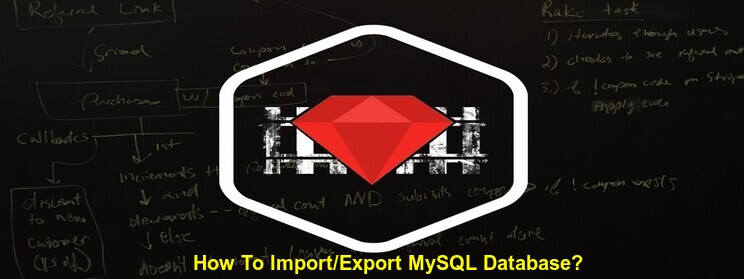Ruby is a high level programming language from Japan creating a buzz and revolutionizing the tech industry. It was created by Yukihiro Matsumoto better known as Matz in 1995. Matz created Ruby as an object-oriented programming from programming languages, such as Lisp, Perl, and Ada, while placing major emphasis on “trying to make Ruby natural, not just simple.” Interpreted like Perl and Python and object oriented like Java and Ada, Ruby manages to create a perfect balance between performance and simplicity.
Known as ‘Ruby on Rails’, ‘RoR’ or ‘Rails’, Ruby on Rails is a rapid web development framework developed in Ruby. Created in 2003 by David Heinemeier Hansson, while working on the code base for Basecamp, a project management tool, by 37signals, it was officially released in July of 2004 as open source code.
Ruby on Rails forms the mainstay of many popular web application is arguably becoming the hottest technology in web development. Ruby on Rails is both adored by the developers and entrepreneurs because it is perhaps one of the most productive ways of building an application. Gaining early popularity through start-ups and small businesses, the demand for Ruby on Rails has been fuelled by the organizations which have benefited from the agility and speed of building quicker applications resulting in improved productivity and business growth.
What sets Ruby on Rails from other framework is the speed and the ease with which the applications can be built and deployed. Edits can be easily applied without breaking the core and avoiding the normal time consumption associated with typical web development cycle. What makes Ruby really special is the fact that you can pack a lot of expression with just few lines of codes. This pragmatism is one of the most important element aiding in the popularity of Ruby on Rails.
Ruby on Rails has a vibrant and avid community. Rails has three basic principles which has been followed despite the fast iteration of the Rails code base. Here are some of the features which sets Rails apart from other frameworks.
Convention Over Configuration :
Rails heavily emphasizes on “Convention over Configuration.” What is meant by this is if one follows suggested naming conventions, it allows one to write minimum amount of code to get the application running. Unlike other languages which focus on the need of heavy configuration, Rails has set rules to ease up working with the application. These convention help expedite development, keep the code readable and concise and allow an easy navigation inside the application.
Metaprogramming :
In other frameworks, extensive code generation is the norm stretching the web development process to months. Ruby employs metaprogramming techniques which is the method to write programs using programs. Because of this, Ruby is able to build applications faster and much easier.
Active Record Framework :
Since, Rails is object oriented framework, it introduced the Active Record framework, which means objects are saved in the database and the Active Record automatically searches, selects the objects and attaches them to the domain object using metaprogramming feature.
Automated Testing :
Rails provide built-in testing to automatically test and also provide supporting codes named as harnesses and other fixtures making test cases easier to write and execute.
Scaffolding :
One of the best features in Rails is scaffolding wherein you can create temporary codes to help get the application up in the earlier stages of development itself and see how all components work together.
Three Default Environments :
Rails provide you with three default environments from development, testing, and production. All the stages behave as they should making the entire software cycle easy to handle.
David Hansson created Rails to improve programmers’ happiness and increase overall productivity without sacrificing the code quality. Rails helps you create a full-stack web application quickly and without breaking any sweat. With so many benefits, it’s no wonder Rails has gained so much popularity over the years.
RailsCarma has been implementing Ruby on Rails from its nascent stages for development, training, deploying and contributing back to the Rails Community. Through trusted technical expertise and consummate customer service combined to deliver a delightful experience for our clients, RailsCarma provide end to end Ruby on Rails consulting, architecture, building, management and extension to companies around the globe. You can contact us in case of any queries.
Read More :





